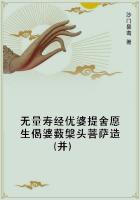When we inquire what is the meaning of the effects produced on our senses-- when we ask how there come to be in our consciousness impressions of sounds,of colours, of tastes, and of those various attributes we ascribe to bodies,we are compelled to regard them as the effects of some cause. We may stopshort in the belief that this cause is what we call matter. Or we may conclude,as some do, that matter is only a certain mode of manifestation of spirit,which is therefore the true cause. Or, regarding matter and spirit as proximateagencies, we may ascribe the changes wrought in our consciousness to immediatedivine power. But be the cause we assign what it may, we are obliged to supposesome cause. And we are obliged not only to suppose some cause, but also afirst cause. The matter, or spirit or other agent producing these impressionson us, must either be the first cause of them or not. If it is the firstcause the conclusion is reached. If it is not the first cause, then by implicationthere must be a cause behind it, which thus becomes the real cause of theeffect. Manifestly however complicated the assumptions, the same conclusionmust be reached. We cannot ask how the changes in our consciousness are caused,without inevitably committing ourselves to the hypothesis of a First Cause.
But now if we ask what is the nature of this First Cause, we are drivenby an inexorable logic to certain further conclusions. Is the First Causefinite or infinite? If we say finite we involve ourselves in a dilemma. Tothink of the First Cause as finite, is to think of it as limited. To thinkof it as limited implies a consciousness of something beyond its limits: it is impossible to conceive a thing as bounded without assuming a regionsurrounding its boundaries. What now must we say of this region? If the FirstCause is limited, and there consequently lies something outside of it, thissomething must have no First Cause -- must be uncaused. But if we admit thatthere can be something uncaused, there is no reason to assume a cause foranything. If beyond that finite region over which the First Cause extends,there lies a region, which we are compelled to regard as infinite, over whichit does not extend -- if we admit that there is an infinite uncaused surroundingthe finite caused; we tacitly abandon the hypothesis of causation altogether.
Thus it is impossible to consider the First Cause as finite. But if it cannotbe finite it must be infinite.
Another inference conceding the First Cause is equally necessary. It mustbe independent. If it is dependent it cannot be the First Cause; for thatmust be the First Cause on which it depends. It is not enough to say thatit is partially independent; since this implies some necessity which determinesits partial dependence, and this necessity, be it what it may, must be ahigher cause, or the true First Cause, which is a contradiction. But to thinkof the First Cause as totally independent, is to think of it as that whichexists in the absence of all other existence; seeing that if the presenceof any other existence is necessary, it must be partially dependent on thatother existence, and so cannot be the First Cause. Not only however mustthe First Cause be a form of being which has no necessary relation to anyother form of being, but it can have no necessary relation within itself.
There can be nothing in it which determines change, and yet nothing whichprevents change. For if it contains something which imposes such necessitiesor restraints, this something must be a cause higher than the First Cause,which is absurd. Thus the First Cause must be in every sense perfect, complete,total: including within itself all power and transcending all law. Or touse the established word, it must be Absolute.
Certain conclusions respecting the nature of the Universe, thus seem unavoidable.
In our search after causes, we discover no resting place until we arriveat a First Cause; and we have no alternative but to regard this First Causeas Infinite and Absolute. These are inferences forced on us by argumentsfrom which there appears no escape. Nevertheless neither arguments nor inferenceshave more than nominal values. It might easily be shown that the materialsof which the arguments are built, equally with the conclusions based on them,are merely symbolic conceptions of the illegitimate order. Instead, however,of repeating the disproof used above, it will be well to pursue another method;showing the fallacy of these conclusions by disclosing their mutual contradictions.
Here I cannot do better than avail myself of the demonstration which Mr. Mansel, carrying out in detail the doctrine of Sir William Hamilton, hasgiven in his Limits of Religious Thought. And I gladly do this, not onlybecause his mode of presentation cannot be improved, but also because, writingas he does in defence of the current Theology, his reasonings will be themore acceptable to the majority of readers. §13. Having given preliminary definitions of the First Cause, ofthe Infinite, and of the Absolute, Mr. Mansel says: --"But these three conceptions, the Cause, the Absolute, the Infinite,all equally indispensable, do they not imply contradiction to each other,when viewed in conjunction, as attributes of one and the same Being? A Causecannot, as such, be absolute: the Absolute cannot, as such, be a cause. Thecause, as such, exists only in relation to its effect: the cause is a causeof the effect; the effect is an effect of the cause. On the other hand, theconception of the Absolute implies a possible existence out of all relation.














